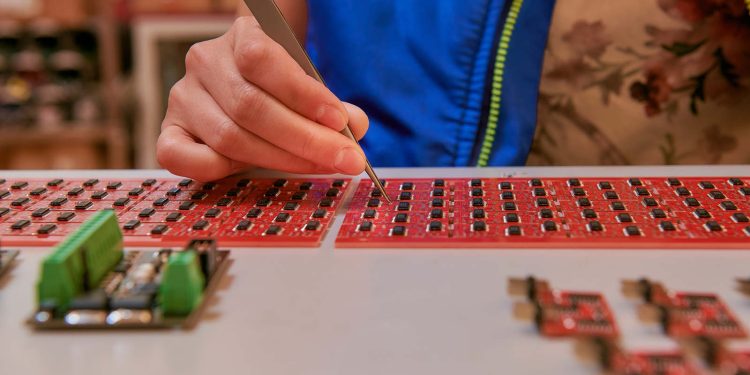#AgriculturalInnovation #GreenhouseFarming #SmartTechnology #LocalManufacturing #MoscowInnovation
In a remarkable technological advancement, a prominent Moscow-based company has unveiled a groundbreaking solution for modern agriculture – a contactless precipitation sensor tailored for greenhouse farms. This cutting-edge device not only detects the intensity of precipitation with high accuracy but also operates seamlessly in the challenging climate conditions of Russia. This innovation promises to revolutionize the way greenhouses are managed, offering unparalleled precision and efficiency.
Development of the Contactless Precipitation Sensor
Traditionally, greenhouse farmers have been reliant on imported rain sensors, often originating from European markets. However, Moscow’s “Laboratory of Engineering Systems” has changed the game by engineering a homegrown solution that outperforms its foreign counterparts in numerous aspects. The sensor not only accurately measures precipitation intensity but also boasts adaptability to Russia’s harsh climate, a crucial factor for its reliability.
Vladislav Ovchinsky, the head of the Department of Investment and Industrial Policy, highlighted the sensor’s multi-faceted applications. It finds utility in industrial greenhouse climate control systems, field irrigation, gardening, and even in the operation of smart homes. This development marks a significant step towards reducing reliance on imported technology, fostering domestic innovation and self-sufficiency.
A Future of Precision Farming
The contactless precipitation sensor holds the potential to transform the landscape of greenhouse farming. Beyond its primary function of detecting precipitation, the sensor can also regulate greenhouse temperatures by controlling the opening and closing of specialized vents. This feature aids in safeguarding crops against adverse weather conditions, a crucial factor in ensuring healthy yields.
Moreover, the sensor seamlessly integrates into smart home systems, enabling the automated activation of snow melting and anti-icing mechanisms for rooftops. Igor Sokolov, the CEO of the company, emphasized the standout feature of the sensor – its contactless precipitation measurement and its minimal maintenance requirements over extended periods. This aspect not only reduces maintenance costs but also enhances user convenience.
Implications of Local Innovation
Moscow, as a hub of industrial activity, has witnessed the emergence of this groundbreaking technology. With nearly four thousand industrial facilities and over 720,000 employees, the city continues to foster innovation and economic growth. The city’s proactive approach to supporting local industries has resulted in the establishment of numerous medium and large enterprises annually, alongside a significant number of small businesses.
The development of indigenous solutions within Moscow’s manufacturing landscape enables producers to scale their output, find new partners, and explore untapped markets. The city offers more than 20 systematic support measures, including subsidies and targeted loans, to aid local enterprises. These initiatives not only stimulate economic resilience but also promote a culture of innovation.
The introduction of the contactless precipitation sensor is a testament to Moscow’s commitment to technological advancement and self-reliance in critical sectors like agriculture. This innovation not only demonstrates the city’s capability to engineer solutions that rival international standards but also highlights the transformative potential of smart technology in revolutionizing traditional practices. As the sensor prepares for serial production, it holds the promise of enhancing agricultural productivity, reducing operational complexities, and driving sustainable growth.











